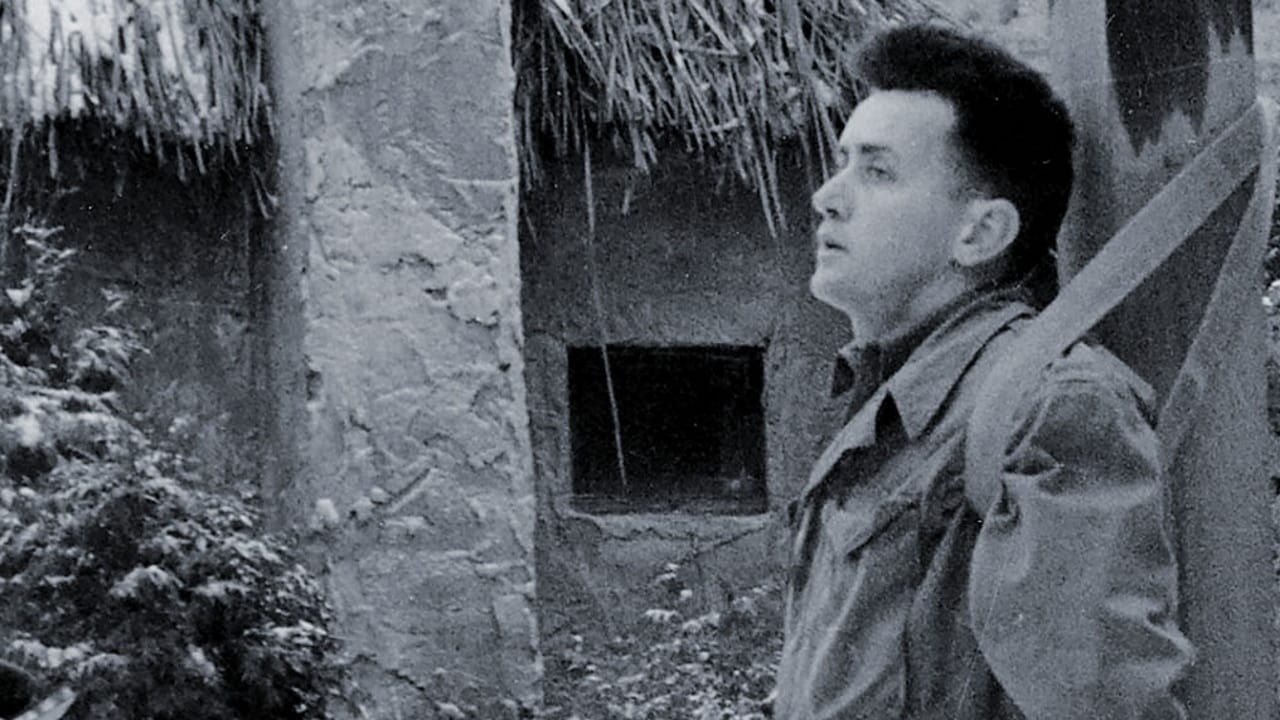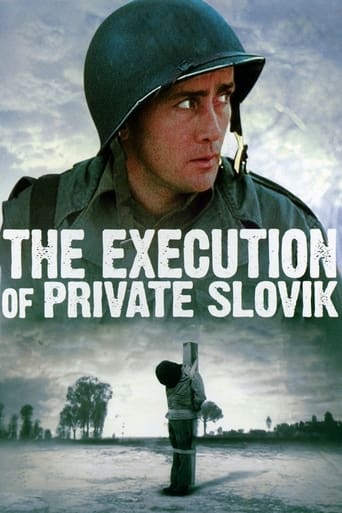

good back-story, and good acting
... View Moredisgusting, overrated, pointless
... View MoreIt’s an especially fun movie from a director and cast who are clearly having a good time allowing themselves to let loose.
... View MoreA film of deceptively outspoken contemporary relevance, this is cinema at its most alert, alarming and alive.
... View MoreThere were three issues that made this movie worth the time and money to watch:1) A cowardly deserter who was afforded a chance to rehab himself was tried, sentenced and executed 2) The leftists that developed the story line did get the name of the 28th ID Provost Marshal correct for the period 3) One of the vehicles depicted was a 28th Division, 28th Military Police Platoon vehicle and it was properly marked.I believe that this is the first of Martin Sheen's anti-military movies but certainly wasn't his last.At the time when this country was locked in a war that very well could have been lost, a service member chose to REPEATEDLY desert and promised to do so again. He was tried, convicted and the sentence was death. All of that superfluous bull hockey about being 4F and a "troubled youth" does not come into play. WE WERE AT WAR./s/ A lifelong soldier, combat veteran and former Provost Marshal, 28th Infantry Division
... View MoreSince only one US serviceman has been executed for desertion since the Civil War, "The Execution of Private Slovik" stands out as a unique piece of history. But Private Slovik wasn't the only US Serviceman executed during World War II, just the only one executed for "desertion." Over a hundred GIs were executed after D-Day for a variety of offenses during the final year of the war, and many of them were Black soldiers. Their story has yet to be told. This movie concentrates on Eddie Slovik, a manipulative and somewhat dim-witted private who believes that the worst thing that can happen to him is a short prison sentence at Fort Leavenworth. Unfortunately for him, desertion during the brutal Battle of the Bulge was becoming a big problem for the US Army command, and Slovik's "open and shut" case gave the brass just the "example" they were looking for. Martin Sheen does fine work here in one of his more memorable roles. He portrays the nervous and misguided Slovik as someone who has convinced himself that his earlier career in petty crime is the basis for all his troubles. Ned Beatty matches him with a sterling performance as the chaplain assigned to remain with Slovik during his ordeal. The movie stays close to the facts and tries its best to steer clear of any easy judgments. It's obvious that Slovik would've received a lighter sentence in a civilian court, but Army justice in 1945 was harsh, swift and unforgiving. In reality, Slovik had few friends and the firing squad, made up of his former comrades-in-arms, didn't flinch when the order to "FIRE!" rang out. They firmly believed that Slovik got what he deserved. Viewers may be split on that verdict. Significantly, it was future US president General Dwight D. Eisenhower who gave the final approval for Slovik's execution. According to all reliable historians, Ike didn't lose any sleep over the decision.
... View MoreI read the book in 1970 or so when I was in the Army, I thought the movie was pretty well balanced. The book starts with Huie visiting the "Dishonored Dead" section of the US Oise-Aisne Cemetery in France where Slovik was initially buried-his remains were repatriated in 1987. The author keeps asking why only one death sentence carried out and why Slovik, why if the purpose was to make an example of him was the execution carried out in secrecy. From there he goes into Slovik's troubled youth, his criminal record which initially protected him from the draft. But as the Drill Sergeant tells him and his fellow recruits in Basic, "You guys are the bottom of the barrel. But now the heat's one, Uncle Same needs bodies, and the bottom of that barrel is starting to look mighty good." Armies-and the governments they serve-have a funny way of lowering their standards as wars drag on. The official name of the Draft in the USA was (and is) Selective Service, by 1943 they were a lot less selective. Slovik was a good example of what WWII GIs called "The Sad Sack" (in my day, 1967-1971, a "dud", in civilianese we might say a loser. One poster said Slovik gambled and lost, a very apt description. He repeatedly declared he would desert if given the chance, he was given a chance to redeem himself, he refused-I can clearly recall the scene where he tells the JAG officer "I want my court martial." Eisenhower hoped he could equal Pershing's record of no executions for desertion, but as the author notes he had a lot of other things on his plate. The author notes the court martial was made up of rear echelon officers, he notes the presence of some combat arms officers would have been better but they were otherwise engaged. I recall the scene where the president of the court reads the written secret ballots, realizes the vote is unanimous for death, tells the others "Let's have another cigarette and think about this."Worth watching, very true to the source, this is one you watch and you draw your own conclusions.
... View MoreFirst of all, I am amazed at the number of people who think this is a factual account. NO movie or TV show that is a "docudrama" or even a documentary is completely factual. (Even Ken Burns made over 1000 documented errors in his Civil War series.) Everyone who puts on a uniform of the military knows the penalty for desertion during wartime. True, few pay that full penalty, but the idiots I have read who ask "why" obviously have no concept of what real war is.Is there someone out there who really believes that World War II was not necessary? Should the US have let Hitler conquer Europe and his allies take Asia? Has the US become so afraid of fighting that we no longer value our freedoms? Slovik should not have died, but the facts in this docudrama are far from complete. It was, and remains, a "Vietnam-esque" view of the military.During the Civil War, cavalry was often put in the rear of the infantry. If men tried to run from the fight, the soldiers had orders to shoot them.The message was clear: Fight the enemy, you may die -- run and you WILL die.In time of war, the Army must be harsh. War is brutal, but that is why it should be the avenue of last resort. Once the die is cast, it must be fought with all the violence and fury needed. Only if we are willing to fight will we maintain our freedom.
... View More